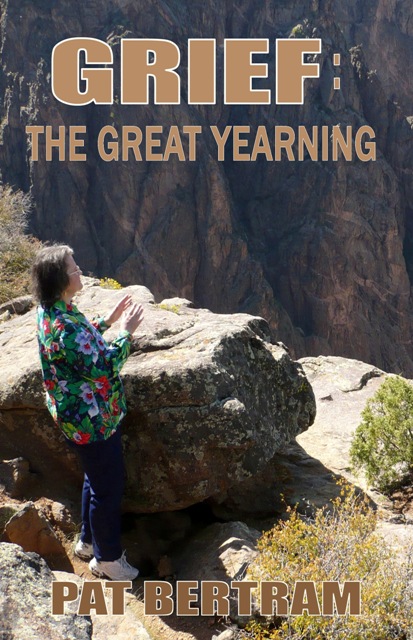 Welcome, Millicent Borges Accardi. Nice meeting you. Do you have a favorite snack food or favorite beverage that you enjoy while you write?
Welcome, Millicent Borges Accardi. Nice meeting you. Do you have a favorite snack food or favorite beverage that you enjoy while you write?
I typically drink Peet’s coffee when I am writing or at my computer. For the holiday season I add egg nog, otherwise I drink it black, and from a giant orange Fiesta-ware mug my husband bought me.
What are you working on right now?
I am working on a collection of poems based on Portuguese and Azorean fairy tales and folklore. I have about 100 pages of primary text (stories) from various sources, including oral histories given by Azoreans who settled in California from the 1950’s to the 1970’s.
Are you writing to reach a particular kind of reader?
I would like to think I reach people who care about literature. With my Portuguese-inspired poetry I would also like to reach immigrants from Luso countries (places where Portuguese is spoken). As a way to connect with community. I am also organizing a public reading during the Associated Writing Program’s conference in Chicago in 2012, called Kale Soup for the Soul, Luso writers read work about family, food and Portuguese culture. It’s an off-site event and will be the first time there has been any reading by Portuguese-American writers at AWP.
What was the first story you remember writing?
I had pneumonia and was home sick for what seemed like months but what was actually a few months. I read Mary Poppins and wanted to write my own novel about the same character so I put together lined paper and tied off 100 pages with pink yarn and started to write my own sequel. I wanted her to be combined with Little Women and Encyclopedia Brown and I wanted her to solve crimes. At least it gave me something to do to occupy my time.
What is the most difficult part of the whole writing process?
I think marketing and getting the word out there. I get tired of pushing all the time. Between applying for grants and fellowships, requesting recommendation letters, filling out forms for artist residencies, getting into book fairs, scheduling and giving poetry readings and book signings, and blaring announcements all the time for my various articles, it takes a lot of energy.
What is the easiest part of the writing process?
Coming up with an idea and just flowing with it. That perfect moment when everything pops into place like solving the Rubik’s Cube. Or like hitting the exact note, with the exact intonation and pitch that cracks the glass on the piano. And you say, Ah. That is it!
What’s been the most surprising part of being a writer?
Being even kind of successful. I never thought it was possible. I cried and screamed and lost my day job as a technical writer for an oil company when Cliff Becker from the National Endowment for the Arts called me at work to say that I had been given $20,000 from the US government for writing poetry. Before that, I had no idea such things were possible. That was also the first time I had applied. Since then, of course, I have had many rejections and some other truly wonderful acceptances and fellowships. But that first one, I was in shock. Absolute shock.
What do you like to read?
It sounds strange for a poet to say that she likes to read fiction, but that IS what I am drawn to first. The short stories of Charles Baxter, Richard Ford’s novels, Ray Carver, Angela Carter, Iris Murdock, Donna Tartt, AS Byatt.
What one book, written by someone else, do you wish you’d written yourself.
That is a cross between The Sun Also Rises and The Great Gatsby.
What advice you would give to an aspiring author?
Read. And then read some more. Too many people jump in with vague notions of what is wonderful and unique and their work falls flat because what they are doing has been done before many many times and by writers who are better than they are. It would be considered stupid for someone to decide one day that they wanted to sky dive and then jump out of a plane. Why is writing any different? Learn to fold your parachute. Watch other sky divers. Piggy back on a teacher before a solo jump.
How have you marketed and promoted your work?
Through online groups, Twitter, Facebook, email and direct mail campaigns. But probably the best sales tool is giving readings, promotion with a personal touch, a relationship or bonding between the potential reader and the poems. I might sell 5 copies if I send a mass email to 300 people, but, after a poetry reading, or a series of readings, I could sell and sign 40 or 50 books.
Have you written any other books?
I have three poetry collections: Woman on a Shaky Bridge (chapbook with Finishing Line Press), Injuring Eternity (full length collection with Mischievous Muse) and Only More So (forthcoming from Salmon Press, Ireland in 2012). I also have a 4th complete manuscript I am shopping around and an in-progress project called Poems from the Portuguese (which has about 20 pages complete).
Where can people learn more about your books?
I am on Wikipedia, Amazon, Facebook and many other nooks and crannies of the Internet.
What else would I like to add?
Here’s a recent interview where I discuss finding my roots in Lisbon, poetry and a little bit about yoga too:
Here’s an article about the Luso identity:








December 31, 2011 at 8:33 am
[…] Millicent Borges Accardi, author of “Injuring Eternity” (poetry collection), with Pat Bertram – “I have three poetry collections: Woman on a Shaky Bridge (chapbook […]
October 18, 2012 at 2:26 pm
[…] From an interview with: Millicent Borges Accardi, Author of Injuring Eternity […]